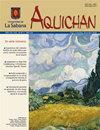经验指标:概念和理论渊源
Q3 Nursing
引用次数: 3
摘要
本文讨论了护理概念模型概念、中程理论和情境理论概念之间的联系,以及这些理论概念与如何衡量它们(即经验指标)之间的联系。描述了三种类型的经验指标——工具、评估工具和干预措施——并给出了每种类型的例子。这篇论文的中心论点是,概念模型概念是——或者应该是——选择或构建经验指标的起点。本文章由计算机程序翻译,如有差异,请以英文原文为准。
Empirical Indicators: Conceptual and Theoretical Origins
This paper discusses the connections between nursing conceptual model concepts, middle-range theory, and situation-specific theory concepts, as well as between the theory concepts and how they are measured, that is, empirical indicators. Three types of empirical indicators are described—instruments, assessment tools, and interventions—and an example of each type is given. The paper’s central thesis is that a conceptual model concept is —or should be— the starting point for selecting or constructing an empirical indicator.
求助全文
通过发布文献求助,成功后即可免费获取论文全文。
去求助
来源期刊

Aquichan
NURSING-
CiteScore
1.10
自引率
0.00%
发文量
32
审稿时长
>12 weeks
期刊介绍:
Aquichan, a journal of medical and health sciences from the field of health sciences and, more specifically, nursing, publishes articles resulting from investigations from a point of view of epistemology, evidence-based practice, chronic care, promotion and prevention. The articles are for the academic and scientific community, both in Colombia and abroad.
The journal accepts original, previously unpublished papers in Spanish, English, and Portuguese, which are the product of a research or a review and which are not being evaluated by other scientific journals, either in print or electronic form.
 求助内容:
求助内容: 应助结果提醒方式:
应助结果提醒方式:


